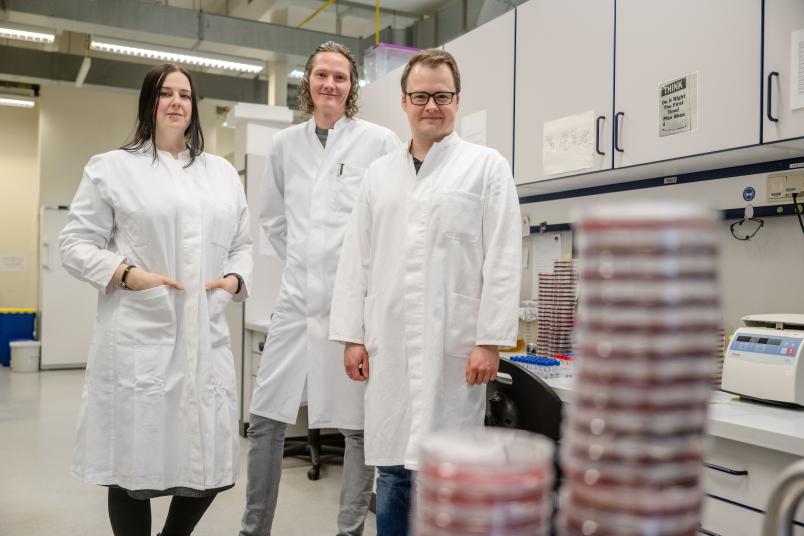
Medicine Increase in multidrug-resistant pathogens since Ukraine war
The pathogens reach German hospitals with refugees and war casualties. Researchers recommend precautionary screening for hospitals.
Since the outbreak of the war in Ukraine, certain hospital pathogens that are resistant to many antibiotics have been detected with striking frequency in German hospitals. Due to a combination of two enzymes, some strains of the pathogen Klebsiella pneumoniae are resistant even to carbapenems, which are classified as antibiotics of last resort. In collaboration with the Robert Koch Institute (RKI), the National Reference Centre (NRC) for multidrug-resistant Gram-negative bacteria, based at Ruhr University Bochum, has proved that many of the reported cases are associated with patients from Ukraine. The researchers therefore recommend that this group should be screened prior to hospital admission. They published their findings in the journal Eurosurveillance on 15 December 2022.
Proof of a conspicuous connection
The isolates of the bacterium Klebsiella pneumoniae, which have been detected in large numbers in samples from German hospitals since the spring of 2022, produce a combination of two different so-called carbapenemases, NDM-1 and OXA-48, which are able to cleave carbapenem antibiotics. “We noticed that many of the respective samples had a connection to Ukraine, that the corresponding patients had fled from there, for example, or had been hospitalised in Germany as war casualties,” explains Dr. Niels Pfennigwerth from the NRC. Subsequent investigations proved that there was indeed a connection, which was also reflected in thesurveillance data collected by the Robert Koch Institute.
“Our analyses have shown that it is very likely that outbreaks with these bacterial strains have occurred in Germany as a result of the hospitalisation of Ukrainian patients,” says Niels Pfennigwerth. The NRZ and RKI team therefore recommend precautionary screening of persons with a connection to Ukraine when admitted to German hospitals. “If the screening confirms that the person is infected with the pathogen, they will be isolated in the hospital and very strict hygiene measures will be implemented,” points out the researcher.
People who are otherwise healthy often don’t notice that they have been exposed to such pathogens. In hospitals, however, the pathogens can be transmitted to people who are severely compromised due to illness or injury, especially via the hands of the medical personnel. In this case, Klebsiella pneumoniae can cause pneumonia, wound infections or urinary tract infections, to name but a few. Due to its resistance even to antibiotics of last resort, which are reserved exclusively for severe cases that need to be treated in hospital, treatment may no longer be possible at all in the worst case scenario.